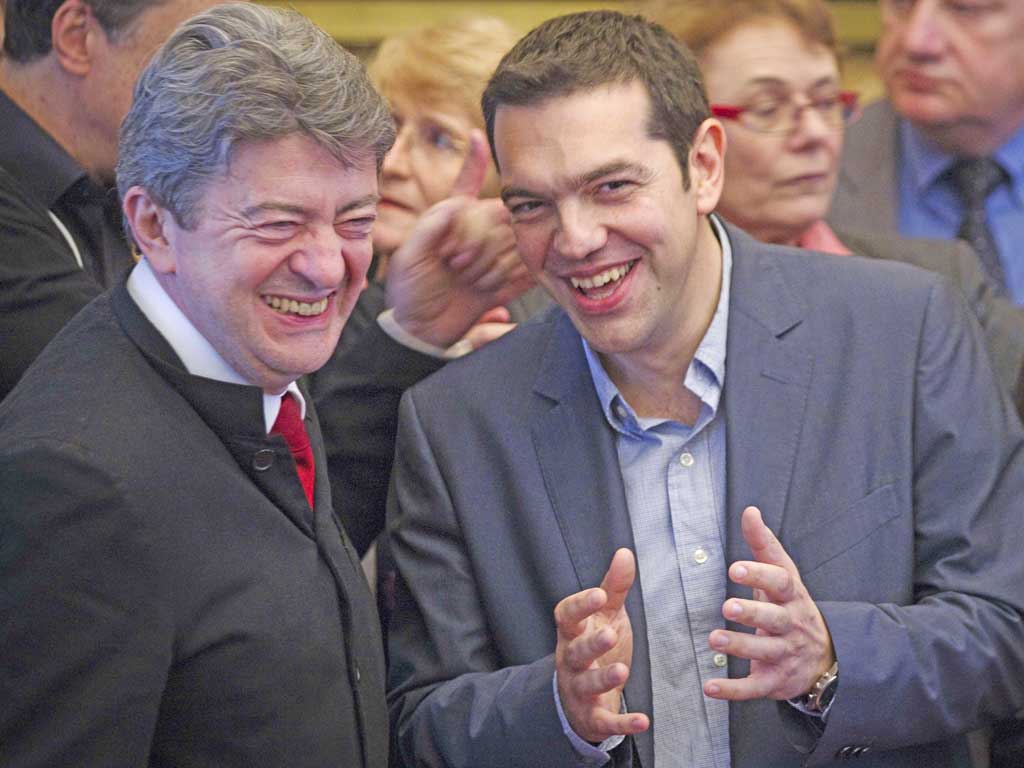France's renewed push for eurobonds and an easing of austerity policies across the eurozone as an emergency solution to the continent's sovereign debt crisis met firm resistance from Germany yesterday.
France's new president, François Hollande, has promised to put proposals for jointly guaranteed eurozone debt back on the negotiating table when European leaders meet for an informal summit in Brussels tomorrow. There have also been growing French calls for a relaxation of the terms of the fiscal compact, which European leaders agreed to implement in December, in order to ease the pressure on those eurozone members such as Spain and Italy that have fallen back into recession.
But German officials signalled stern opposition on both fronts yesterday. "The fiscal compact cannot be renegotiated or softened" said Joerg Asmussen, a German board member of the European Central Bank, in a speech in Berlin. This sentiment was echoed by Steffen Kampeter, a civil servant at the German finance ministry: "We have always said that as a first step we need solidity in European finances, and that is the fiscal compact." He also repeated Germany's position that jointly-issued eurozone debt is "the wrong prescription at the wrong time with the wrong side-effects".
Mr Hollande is likely to be backed by the Italian Prime Minister, Mario Monti, and the Spanish Prime Minister, Mariano Rajoy, in his call for eurobonds.
The need for such decisive action was echoed in Chicago last night when Barack Obama, speaking at the Nato summit, made a rare public forray into European politics by calling on the Continent's leaders to "act forcefully" rather than "in small bite-size pieces and increment". Whether such comments will be welcomed by EU heads before their key meeting on Wedensday remains to be seen, however. David Cameron was yesterday forced to defend his repeated demands for eurozone countries to resolve their crisis, which have irritated several EU governments. Insisting he had been "constructive", he told a press conference in Chicago: "The truth is that we have not done enough to resolve this crisis...I judge it would have been more dangerous to stay silent."
Meanwhile the French Finance minister, Pierre Moscovici, met his German counterpart Wolfgang Schäuble in Berlin yesterday. The German Chancellor, Angela Merkel, sought to downplay Franco-German policy animosity after the weekend's G8 meeting. "France and Germany do not hold opposing views," she said at Camp David. "We want to give a signal that we are eager to see the global economy recover and that growth and consolidation are two sides of the same coin."
A possible compromise could be the increased issuance of debt by the European Investment Bank (EIB) to fund specific infrastructure projects across weaker members of the eurozone. This would in effect be a commonly issued tranche of bonds because the EIB is jointly guaranteed by EU member states.
Yet there were French demands, too, for greater activism from the ECB yesterday. France's Prime Minister, Jean-Marc Ayrault, told a newspaper that more lending from the central bank to stabilise the single currency should not be ruled out. By the time of the next formal EU summit, on 28-29 June, the outcome of the Greek election, to be held on 17 June, will be known. If that does not produce a government willing to implement the terms of its EU/IMF bailout, the country's rescue funds could be cut off, forcing the country into a default and a possible eurozone exit.
Elsewhere, Spain's Economy minister, Luis de Guindos, said he expected his country's recession to continue for another three months, with activity falling by 0.3 per cent between April and June.
Eurobonds: would they help?
The eurozone is in trouble because investors in the debt of some sovereign states are terrified they might not get their money back.
The destabilising dynamic of this crisis is that investors have been selling the bonds of weaker members, forcing them to apply for bailouts from their more creditworthy neighbours. This cannot go on forever as there is not enough money in the eurozone's bailout pot to rescue Italy should it get shut out of the debt markets.
The eurobonds solution is to permit vulnerable nations to issue sovereign debt jointly guaranteed by all member states. Thus the weaker states could benefit from the good credit of the strong. Germany, however, argues that would only store problems up for the future by allowing states to carry on accumulating debt without reforming their economies.
Subscribe to Independent Premium to bookmark this article
Want to bookmark your favourite articles and stories to read or reference later? Start your Independent Premium subscription today.


Join our commenting forum
Join thought-provoking conversations, follow other Independent readers and see their replies